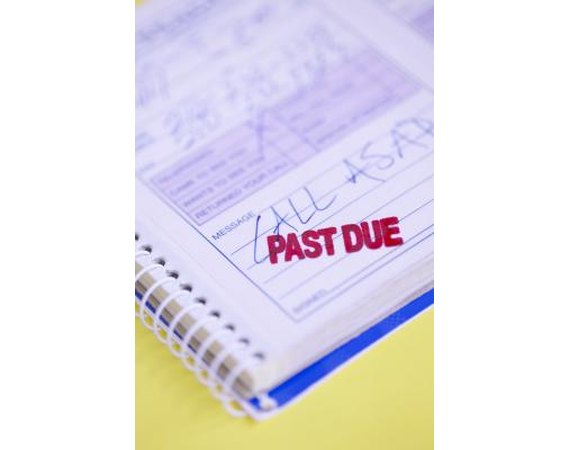
The Fair Debt Collection Practices Act requires lenders and collectors to abide by rules and regulations to ensure that borrowers are being treated fairly and with respect. One of these rules is that collectors must provide proof to the borrower that he actually owes the debt. If the collector cannot provide evidence that the borrower owes that debt, then it may not contact borrower again.
Verification of Debt
According to the Act, the debt collector must provide you with a validation notice within 5 days after it first contacts you. The notice must include the creditor name and the amount you owe. It must also include instructions for you to follow if you suspect that the debt isn't yours. If you don't owe the debt, send the collector a certified letter within 30 days of receiving the first validation notice. The collector must cease contact immediately upon receipt of the letter. However, if the collector can verify that you owe the debt, it may begin contacting you again.
Allowable Collector Actions
Once the collector has adequately verified the debt, it may call you at your home between 8:00 a.m. and 9:00 p.m. It may also contact you at work (though if you request not to be contacted at work, the collector must honor that request). It may discuss your debt with a third party, such as an attorney, that you approve. It may also file a lawsuit against you and attempt to collect a judgment. If the collector's lawsuit is successful, then it may garnish funds in your bank account to repay the debt.
Illegal Collector Actions
A debt collector may not threaten or harass you by using obscene language, threatening arrest, or making false claims. It is not permitted to pretend to be someone else or report false information. It cannot deposit a post-dated check early or contact you by postcard. If a collector is managing multiple debts that you owe, it must apply payments to the debts in the way that you order; it may not apply a payment to a debt you don't think you owe.
Borrower Recourse
If you suspect that a collector has violated the Fair Debt Collection Practices Act by failing to provide proper verification of the debt, file a complaint with the Federal Trade Commission and your state attorney general. States frequently have debt collection laws separate and apart from the Act that will govern your situation, and your state will be able to help you determine what laws, if any, the collector has violated. Collectors that have acted unlawfully will be required to pay damages, and borrowers are eligible to file a class action lawsuit, if necessary.






0 comments:
Post a Comment